Property Insurance Coverage Options
Building Coverage
- What it covers: The physical structure of your business property.
- Consider if: You own the building or are responsible for it under a lease agreement.
Tenan's Improvement and Betterments
- What it covers: If you lease a building but you have improved the interior
- Consider if: You lease a building and you have invested in significant improvements.
Business Personal Property Coverage
- What it covers: Contents within the building, such as furniture, equipment, and inventory.
- Consider if: You have significant assets inside the building that would be costly to replace.
Business Interruption Insurance
- What it covers: Loss of income and operating expenses if your business is temporarily unable to operate due to a covered event.
- Consider if: A temporary shutdown would significantly impact your revenue.
Extra Expense Coverage
- What it covers: Additional costs incurred to continue operations after a covered loss (e.g., renting temporary space).
- Consider if: You need to minimize downtime and continue operations during repairs.


Equipment Breakdown Insurance
- What it covers: Repair or replacement of machinery and equipment that breaks down due to mechanical or electrical failure.
- Consider if: Your business relies heavily on specific equipment.
Inland Marine Insurance
- What it covers: Property in transit or mobile equipment.
- Consider if: You frequently transport goods or have mobile equipment.
Crime Insurance
- What it covers: Losses due to theft, fraud, employee dishonesty, or social engineering.
- Consider if: You handle significant amounts of cash, valuable inventory, or are susceptible to fraud.
Flood Insurance
- What it covers: Damage from flooding, which is typically not covered under standard property policies.
- Consider if: Your business is located in a flood-prone area, or sewers are known to not handle the waterflow.
Earthquake Insurance
- What it covers: Damage from earthquakes, also not typically covered under standard property policies.
- Consider if: You are in an earthquake-prone region.
How to Determine Your Commercial Property Coverage Needs
Assess Your Risks
- Location: Consider geographical risks like floods, earthquakes, or hurricanes.
- Industry: Some industries have higher risks (e.g., manufacturing vs. retail).
Evaluate Your Assets
- Building Value: Ensure coverage is sufficient to rebuild your property.
- Value of Building Contents: Inventory, equipment, and furnishings should be covered for their replacement cost.
Analyze Your Operations
- Business Continuity: How long can you afford to be out of operation? Business interruption and extra expense coverage can be crucial.
- Equipment Dependency: If specific equipment is vital, consider equipment breakdown coverage.
Financial Considerations
- Deductibles: Higher deductibles can lower premiums but increase out-of-pocket costs during a claim.
- Coverage Limits: Ensure limits are adequate to cover potential losses without being excessive.
Legal and Lease Requirements
- Lease Agreements: Some leases may require specific types of coverage or minimum limits.
- Regulations: Certain industries may have mandated insurance requirements.
Steps to Take
- Inventory Your Assets: Create a detailed list of your property, including estimated values.
- Consult an Insurance Agent: An independent agent can help tailor a policy to your specific needs and provide quotes from multiple carriers.
- Review and Update Regularly: As your business grows or changes, periodically review your coverage to ensure it remains adequate.

